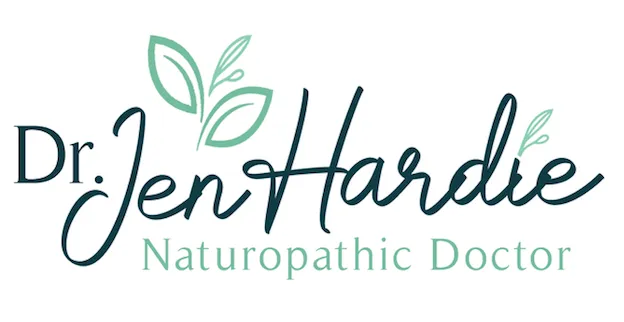The Importance of Choline During Pregnancy: A Nutrient You Don’t Want to Miss
Pregnancy is a time of rapid growth and development, not only for the baby but also in the body of the mother. While many nutrients get their time in the spotlight during this period, like folic acid, iron, and calcium, there's one nutrient that’s often overlooked yet plays a crucial role: choline.
Choline is essential for the development of a healthy brain and nervous system in the baby, and it also provides critical benefits for the mother. Yet, many women may not be getting enough of this nutrient. Let’s dive into what choline is, why it’s vital during pregnancy, and how to ensure you're getting an adequate amount in your diet.
What is Choline?
Choline is a water-soluble nutrient that’s often grouped with B vitamins. While it’s not a true vitamin, choline has some overlapping functions with B-complex vitamins, such as supporting the nervous system and aiding in metabolism. Our bodies can produce a small amount of choline, but not nearly enough, especially during pregnancy. As a result, dietary choline is essential.
Why is Choline Important During Pregnancy?
Choline is fundamental to various processes that are especially critical during pregnancy. Here’s how it supports both maternal and fetal health:
1. Brain Development
One of choline’s primary roles during pregnancy is in the development of the baby’s brain. Choline is necessary for forming cell membranes and is particularly crucial for the growth of the hippocampus, the brain’s memory center. Adequate choline levels are associated with improved cognitive function, learning, and memory abilities in the baby later in life.
2. Preventing Neural Tube Defects
Similar to folate, choline supports the development of the neural tube, the precursor to the baby’s brain and spinal cord. A deficiency in choline may increase the risk of neural tube defects, like spina bifida. In fact, recent studies suggest that choline works alongside folate, and both nutrients are essential for minimizing these risks.
3. Supporting DNA Expression and Healthy Growth
Choline plays a role in DNA methylation, a process that influences which genes are turned on or off. This is crucial in fetal development, as proper gene expression guides everything from organ growth to metabolic processes. Sufficient choline intake may have long-term health implications for the child, influencing growth, immune function, and even disease resistance.
4. Protecting Maternal Liver Health and the Placenta
During pregnancy, the liver works harder to support both the mother and baby. Choline supports liver function by aiding in the transport of fats, helping to prevent issues like fatty liver. Additionally, choline plays a role in maintaining a healthy placenta, which is vital for nutrient exchange and waste removal between mother and baby.
5. Reducing the Risk of Pregnancy Complications
Choline may also help lower the risk of certain pregnancy complications, such as preeclampsia. Some studies have shown that choline supplementation can help regulate blood pressure, an important factor in preventing preeclampsia and ensuring a smoother pregnancy journey.
How Much Choline Do You Need?
The recommended daily intake of choline during pregnancy is around 450-900 mg per day. However, research suggests that many women may not meet this requirement. Since the body’s choline needs increase during pregnancy, getting adequate amounts through food is essential.
Best Sources of Choline for Pregnant Women
Choline is found in a variety of foods, though some sources are richer in choline than others. Here are some of the best dietary sources:
- Eggs: One egg yolk provides around 147 mg of choline, making it one of the most concentrated sources. Try including an egg in your daily diet to boost your intake.
- Lean Meats: Chicken, turkey, and lean cuts of beef are good sources of choline.
- Fish: Fish like salmon and cod contain choline along with other important nutrients like omega-3s, which also support brain development.
- Cruciferous Vegetables: Foods like broccoli, Brussels sprouts, and cauliflower contain choline and are packed with additional nutrients.
- Legumes and Nuts: Although they contain lower amounts, adding legumes (like chickpeas) and nuts to your meals can still contribute to your overall choline intake.
For those who don’t consume animal products or have dietary restrictions, consider discussing choline supplementation with your healthcare provider to ensure you’re meeting the recommended intake.
Is Supplementation Necessary?
While dietary sources are generally preferred, some women may need a choline supplement, especially if they’re vegetarian or vegan, or if they have difficulty eating the primary sources of choline. Prenatal vitamins, however, don’t always contain choline, so it's important to check labels and consider additional supplements if needed.
Final Thoughts: Make Choline a Priority
Choline might not be as well-known as other prenatal nutrients, but it’s a critical player in fetal brain development, preventing birth defects, and ensuring both maternal and fetal health. By prioritizing choline-rich foods or discussing supplementation with your healthcare provider, you can help support a healthy pregnancy and provide lasting benefits to your child.
As we continue to understand more about prenatal nutrition, choline stands out as a nutrient that truly deserves attention. Adding choline to your prenatal care plan is a simple but powerful way to invest in the long-term health of both you and your baby.
